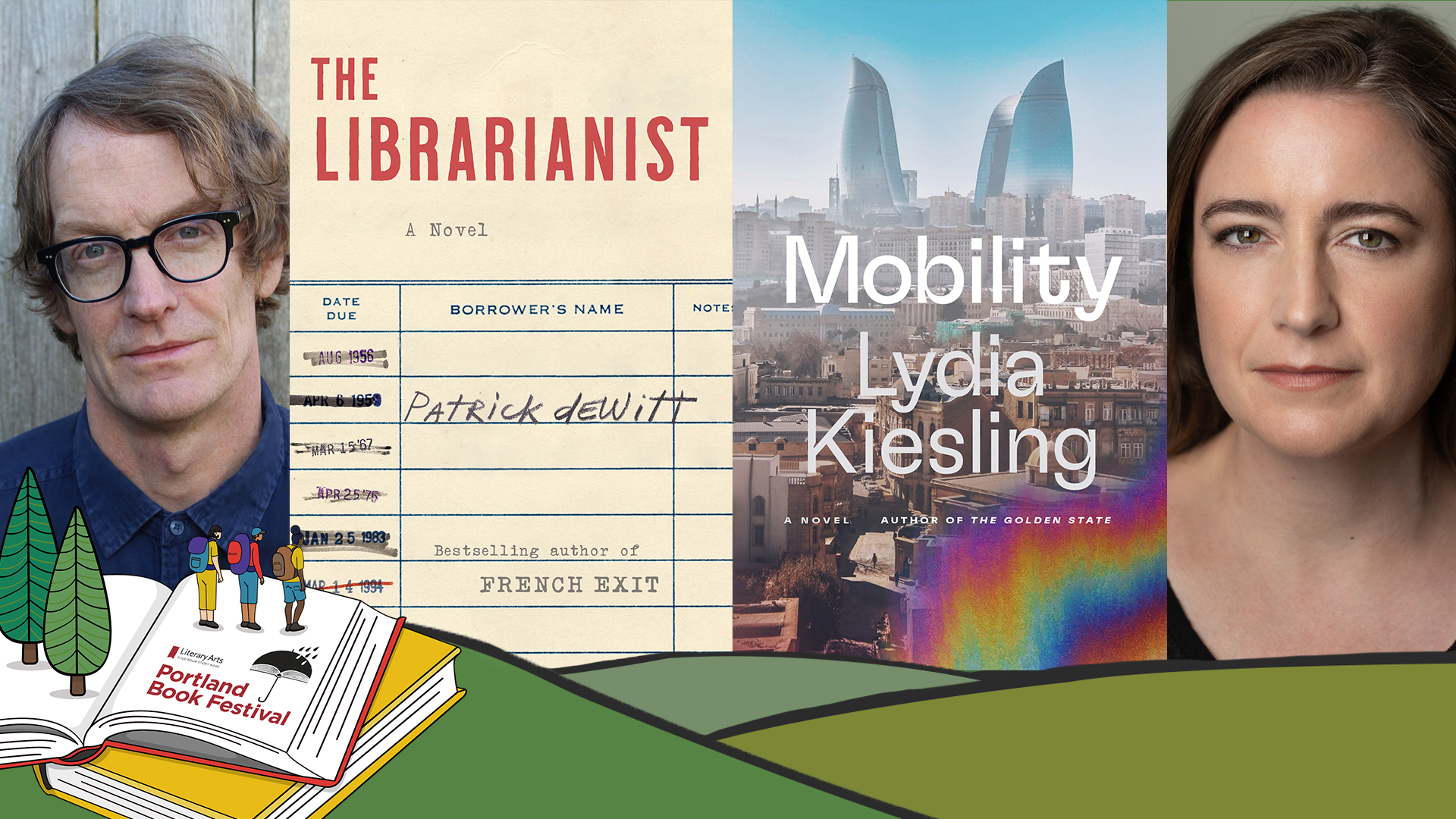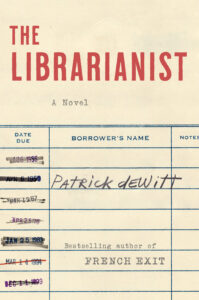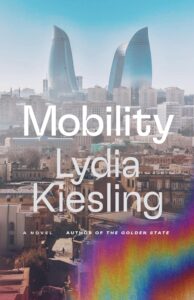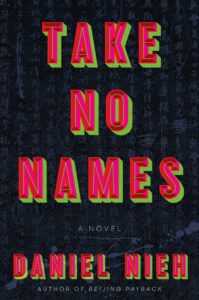
- This event has passed.
This Life: Patrick deWitt & Lydia Kiesling
PBF PassNovember 4, 2023 @ 5:00 pm - 6:00 pm
Portland Art Museum Miller Gallery

A study of character studies. From bestselling and award-winning author Patrick deWitt comes The Librarianist, the story of Bob Comet, a man who has lived his life through and for literature, unaware that his own experience is a poignant and affecting narrative in itself. Both geopolitical exploration and domestic coming-of-age novel, Lydia Kiesling‘s Mobility is a propulsive and challenging story about class, power, politics, and desire told through the life of one woman—her social milieu, her romances, her unarticulated wants. Moderated by Daniel Nieh (Beijing Payback).
 Bob Comet is a retired librarian passing his solitary days surrounded by books and small comforts in a mint-colored house in Portland, Oregon. One morning on his daily walk he encounters a confused elderly woman lost in a market and returns her to the senior center that is her home. Hoping to fill the void he’s known since retiring, he begins volunteering at the center. Here, as a community of strange peers gathers around Bob, and following a happenstance brush with a painful complication from his past, the events of his life and the details of his character are revealed. Behind Bob Comet’s straight-man façade is the story of an unhappy child’s runaway adventure during the last days of the Second World War, of true love won and stolen away, of the purpose and pride found in the librarian’s vocation, and of the pleasures of a life lived to the side of the masses. Bob’s experiences are imbued with melancholy but also a bright, sustained comedy; he has a talent for locating bizarre and outsize players to welcome onto the stage of his life. With his inimitable verve, skewed humor, and compassion for the outcast, Patrick deWitt has written a wide-ranging and ambitious document of the introvert’s condition. The Librarianist celebrates the extraordinary in the so-called ordinary life, and depicts beautifully the turbulence that sometimes exists beneath a surface of serenity.
Bob Comet is a retired librarian passing his solitary days surrounded by books and small comforts in a mint-colored house in Portland, Oregon. One morning on his daily walk he encounters a confused elderly woman lost in a market and returns her to the senior center that is her home. Hoping to fill the void he’s known since retiring, he begins volunteering at the center. Here, as a community of strange peers gathers around Bob, and following a happenstance brush with a painful complication from his past, the events of his life and the details of his character are revealed. Behind Bob Comet’s straight-man façade is the story of an unhappy child’s runaway adventure during the last days of the Second World War, of true love won and stolen away, of the purpose and pride found in the librarian’s vocation, and of the pleasures of a life lived to the side of the masses. Bob’s experiences are imbued with melancholy but also a bright, sustained comedy; he has a talent for locating bizarre and outsize players to welcome onto the stage of his life. With his inimitable verve, skewed humor, and compassion for the outcast, Patrick deWitt has written a wide-ranging and ambitious document of the introvert’s condition. The Librarianist celebrates the extraordinary in the so-called ordinary life, and depicts beautifully the turbulence that sometimes exists beneath a surface of serenity.
“Patrick deWitt is a 21st-century Mark Twain. . . .Is it possible to change the contours of your personality late in life, with, as the woman with the prophetic space heater puts it, ‘the knowledge of a long dusk coming on’? The final scene in The Librarianist features an answer as modest as it is revolutionary, but deWitt has spent the preceding pages making the oxymoron of a modest revolution utterly believable. The answer is: maybe a little bit. Maybe enough.” — Laura Miller, Slate
 The year is 1998, the End of History. The Soviet Union is dissolved, the Cold War is over, and Bunny Glenn is an American teenager in Azerbaijan with her Foreign Service family. Through Bunny’s eyes we watch global interests flock to the former Soviet Union during the rush for Caspian oil and pipeline access, hear rumbles of the expansion of the American security state and the buildup to the War on Terror. We follow Bunny from adolescence to middle age—from Azerbaijan to America—as the entwined idols of capitalism and ambition lead her to a career in the oil industry, and eventually back to the scene of her youth, where familiar figures reappear in an era of political and climate breakdown. Mobility deftly explores American forms of complicity and inertia, moving between the local and the global, the personal and the political, and using fiction’s power to illuminate the way a life is shaped by its context.
The year is 1998, the End of History. The Soviet Union is dissolved, the Cold War is over, and Bunny Glenn is an American teenager in Azerbaijan with her Foreign Service family. Through Bunny’s eyes we watch global interests flock to the former Soviet Union during the rush for Caspian oil and pipeline access, hear rumbles of the expansion of the American security state and the buildup to the War on Terror. We follow Bunny from adolescence to middle age—from Azerbaijan to America—as the entwined idols of capitalism and ambition lead her to a career in the oil industry, and eventually back to the scene of her youth, where familiar figures reappear in an era of political and climate breakdown. Mobility deftly explores American forms of complicity and inertia, moving between the local and the global, the personal and the political, and using fiction’s power to illuminate the way a life is shaped by its context.
“This is the story of a single American life, a frank (and often funny) look at one woman’s becoming. But the accomplishment of Lydia Kiesling’s second novel is untangling the forces—politics, sex, and corporate might—that dictate all of contemporary existence. Mobility is at once a tale of family life and an indictment of capitalism itself; a truly extraordinary book.”
—RUMAAN ALAM, AUTHOR OF LEAVE THE WORLD BEHIND
 Portland Book Festival General Admission Passes are required for entry into all events. Passes are $15 in advance and $25 day of Festival. Youth 17 & under get in FREE. All full-priced General Admission Passes include a $5 book fair voucher and entry into Portland Art Museum. Passes admit attendees to the Festival; individual events are first-come, first-served. More info here.
Portland Book Festival General Admission Passes are required for entry into all events. Passes are $15 in advance and $25 day of Festival. Youth 17 & under get in FREE. All full-priced General Admission Passes include a $5 book fair voucher and entry into Portland Art Museum. Passes admit attendees to the Festival; individual events are first-come, first-served. More info here.
Bios
Patrick deWitt

Lydia Kiesling

Daniel Nieh

